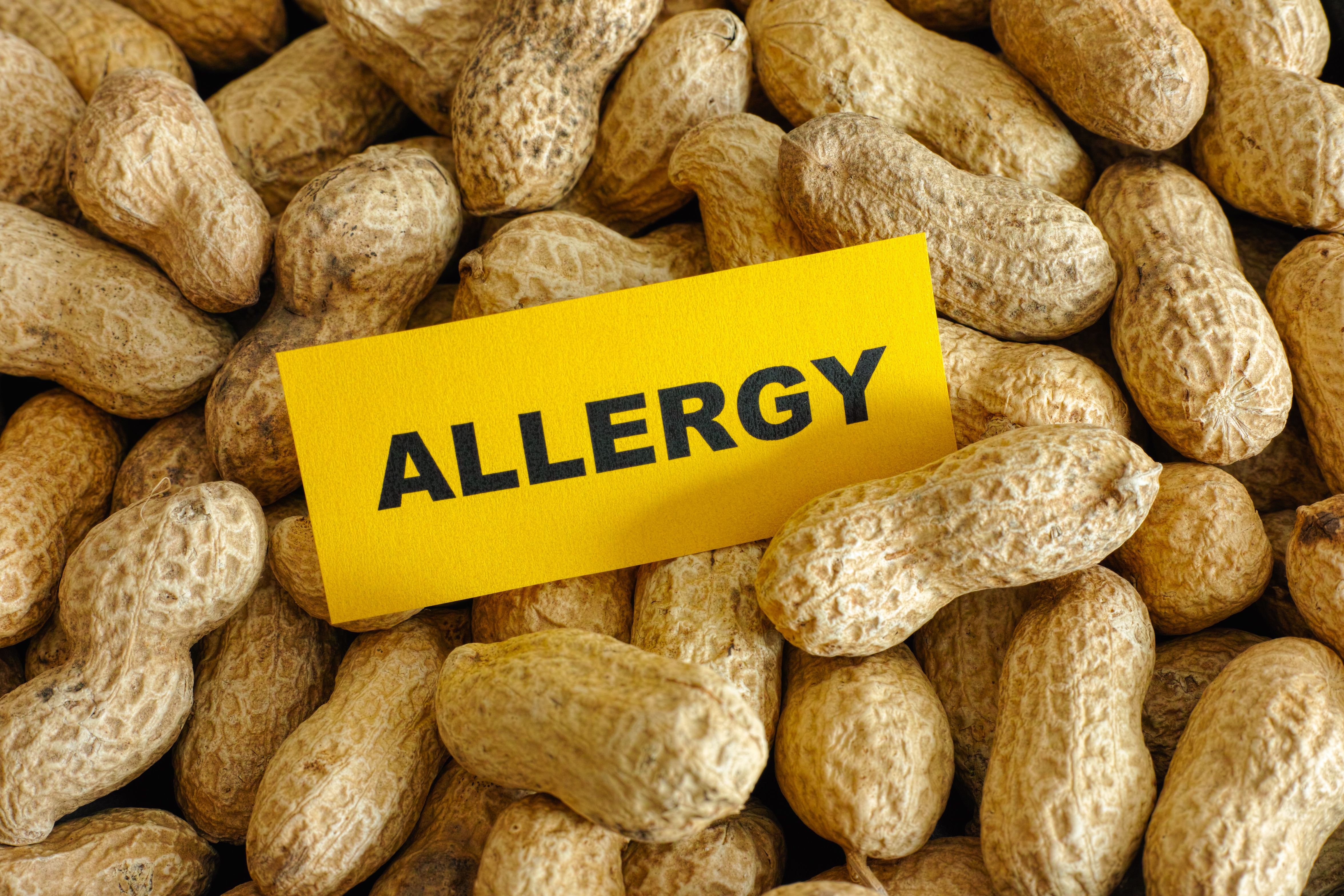Higher BMI, obesity probability not associated with early peanut introduction
A poster session evaluated early evidence from the randomized controlled iREACH trial.
Higher BMI, obesity probability not associated with early peanut introduction | Image Credit: © Stepan Popov - © Stepan Popov - stock.adobe.com.

Early evidence from the Intervention to Reduce Early Peanut Allergy in Children (iREACH) study (NCT04604431) revealed no evidence that early peanut introduction implied a higher body mass index (BMI) or probability of obesity or overweight.1,2
Findings were presented in a poster session at the 2024 Pediatric Academic Societies Meeting, held from May 2 to May 6 in Toronto, Canada.1
There is limited data on the potential that early peanut introduction to prevent peanut allergy could impact children's BMI and risk for obesity.1
The objective of the poster presentation was to compare BMI and obesity and overweight status of children at 2 years of age, between those first fed foods containing peanut at ages 4 to 7 months and those first fed at 8 months of age or older.1
The iREACH randomized, controlled trial measures "the effectiveness of an intervention in increasing pediatric clinicians’ adherence to the 2017 Prevention of Peanut Allergy Guidelines," according to the poster presentation abstract.1
At the practice level, randomization occurred and clinicians in intervention practices received education and decision support tools to implement guidelines. Chi-squared and 2-sample t-tests were used to compare the distributions of the first BMI and obesity/overweight measurement at age 2 years.
Investigators leveraged random variation stemming from the assignment of clinics to the intervention as an instrumental variable for early, aged 4 to 7 months, compared to late, aged 8 months or older, introduction.1
BMI data was collected for 1514 children, 829 in the intervention group and 685 in the control group, in 1 of 3 participating networks. More than half of the participants (62%) were non-Hispanic White (NHW) while 24% had unknown race and ethnicity. Early introducers, according to the poster, were more likely to be NHW than late introducers (65.1% vs 48.5% [P < 0.001]).1
According to the preliminary evidence, there was no statistically significant difference in mean BMI or percent obesity or overweight at age 2 years between early and late introducers. Instrumental variable estimates suggested that "early introduction of peanut reduces the BMI of early introducers by 1.0 (P < 0.075) and, although not statistically significant, the probability of being obese or overweight by 0.05 percentage points (P < 0.579)."1
In conclusion, there was no evidence in a large sample of predominantly NHW children that early peanut introduction implies a higher BMI or probability of obesity or overweight.1
"Further research is warranted to understand the impact among the more racially diverse universe of children participating in the iREACH trial," wrote Neil Thivalapill, MS, research data analyst associate, Center for Food Allergy and Asthma Research, Chicagio, Illinois, the presenting author of the poster.1
Reference:
1. Thivalapill N. The effect of early peanut introduction on infant growth at age 2: Early evidence from the iREACH trial. Poster session presented at: Pediatric Academic Societies Meeting. May 2-6, 2024. Toronto, Canada. https://2024.pas-meeting.org/fsPopup.asp?efp=TE1NSk5TTFcyMDcyOA&PosterID=647842&rnd=0.1000522&mode=posterInfo
2. Intervention to Reduce Early (Peanut) Allergy in Children (iREACH). ClinicalTrials.gov. Updated May 31, 2023. Accessed May 3, 2024. https://classic.clinicaltrials.gov/ct2/show/NCT04604431